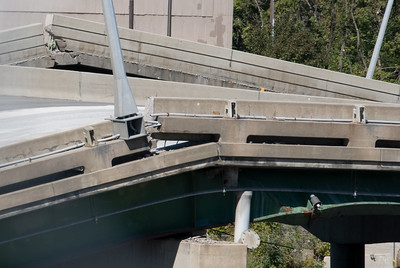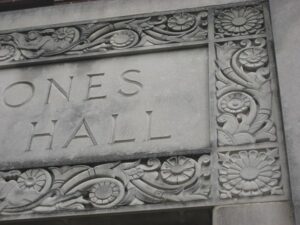A Pittsburgh councilman has come up with a novel way to fund infrastructure. He’s proposed a 1% city infrastructure tax on residents’ medical bills and college tuition. Ricky Burgess, who introduced the measure on Tuesday, said the plan would generate $50M to fix the city’s aging infrastructure. Not surprisingly, the plan has received little to no support.
The tax, if adopted, would apply to a student’s gross tuition bill before any financial aid is applied. Similarly, the same measure would apply taxes to gross medical bills before any insurance is applied. Burgess says the money will be put in a special fund for infrastructure projects. In January, the Fern Hollow Bridge in Pittsburgh collapsed. The National Transportation Safety Board has not yet issued a final determination of why the bridge failed.
Burgess didn’t say why he targeted college students and individuals seeking medical care under his infrastructure taxation plan. Ultimately, the taxation measure is unlikely to pass. Many council members expressed opposition to Burgess’s plan, citing the unfairness of adding taxes to medical bills. Additionally, council members worried about the impact of raising already exorbitant tuition costs.
Under the bill, a full-time community college student in Pittsburgh taking 12 credits would pay an additional $20 each semester because of the tax. A person at a low risk of cancer who receives a screening colonoscopy would pay an additional $50 or more if the screening were conducted at a Pittsburgh medical facility. The bill does not provide waivers for low-income students.
Public should pay for public infrastructure
People turn to this kind of thinking when they don’t want to pay for the services they use. Instead of finding a way to tax the people who use the infrastructure (motorists, truck drivers, etc.), Burgess distributes the cost arbitrarily to students and those unlucky enough to land themselves in the hospital. There’s very little public support for the measure, either. But then again, Burgess hasn’t asked the people of Pittsburgh if they’d be willing to fund a tax on infrastructure.
This particular proposal is a way to strike back at non-profit institutions (like colleges, universities, and hospitals), which seemingly generate a lot of cash but pay no taxes. And this isn’t even a new idea. The measure was first suggested in 2009.
You may say that imposing a “facilities fee” to pay for campus improvements is “fair” because students use the campus facilities. While it’s true that students use the campus directly, communities and employers use it indirectly. Applying a fee directly to students to pay for campus infrastructure is wrong at its core. The community college belongs jointly to the community and the state; the community and state should pay for infrastructure improvements.
The Pittsburgh tax, by the way, is no different than the “facilities fee” that the WCC Administration proposed to generate cash for campus construction projects. Capital costs are not operating expenses, but the WCC Trustees use WCC’s operating funds to pay for capital expenses anyway. Personnel expenses are operating costs. Continually shorting the operating budget to pay for capital costs means that there’s less money available for additional Vice Presidents. Eventually, this strategy is going to dry out the General Fund.
Students shouldn’t pay for buildings, 13 Vice Presidents
Objectively, WCC does not need 13 Vice Presidents. Or 10. Or even five. At best, WCC is a mid-sized community college with fewer than 10,000 students and a single campus. Thanks to the current administration, it has a major-university-sized executive staff. The Board, which has the ultimate hiring and firing authority, is not obliged to approve the unabated administrative hiring spree (and its matching costs). But every month, without fail and without question, they approve the “Personnel Report.”
In doing so, they forfeit their right to protect their own property tax bills from increases. The Trustees can cut costs and manage the size of administration, but they choose not to. When you agree to put 13 Vice Presidents on staff, you place the institution in an unsustainable cost position. That financial support needs to come from somewhere, and it’s unfair to ask the students to pay for it.
Hiring 13 Vice Presidents was the Trustees’ decision, as was the decision to update, remodel and build buildings on campus. When the Trustees agree to hire, buy, or build, they should at least ask where the money to pay for their purchases will come from. (That’s what we elected them to do.)
Ricky Burgess from Pittsburgh wants someone else’s $50M for infrastructure projects each year. If the WCC Trustees believe strongly enough in the merit of a proposed construction project, they should ask the voters to authorize a bond issue to pay for it. If they don’t value the project enough to seek a new tax, the project isn’t worth doing.
Photo Credit: thenip73 , via Flickr






































